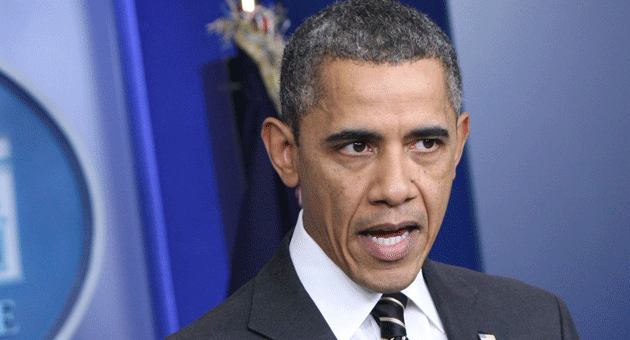Following an awkward, earnest speech to an audience at Howard University, Sen. Rand Paul (R-Ky.) insisted several times that he did not oppose the Civil Rights Act of 1964.
“I’ve never been against the Civil Rights Act, ever,” Paul told a questioner, following what was the first speech by a Republican legislator at the historically black university in decades. “This was on tape,” the questioner responded.
That’s true. It is on tape. Here it is:
In 2010, during an interview with the Louisville Courier-Journal flagged by ThinkProgress, Paul made it very clear that he opposed a key part of the Civil Rights Act of 1964 that banned discrimination on the basis of race in “places of public accommodation,” such as privately owned businesses that are open to the public. Here’s the transcript:
PAUL: I like the Civil Rights Act in the sense that it ended discrimination in all public domains, and I’m all in favor of that.
INTERVIEWER: But?
PAUL: You had to ask me the “but.” I don’t like the idea of telling private business owners—I abhor racism. I think it’s a bad business decision to exclude anybody from your restaurant—but, at the same time, I do believe in private ownership. But I absolutely think there should be no discrimination in anything that gets any public funding, and that’s most of what I think the Civil Rights Act was about in my mind.
If federal civil rights laws only outlawed segregation in “anything that gets any public funding,” the state would still be called upon to enforce racism by enforcing the property rights of business owners who did not want to serve people on the basis of skin color (or religion, or national origin). Only by extending the ban on discrimination to all places of public accommodation, including privately owned businesses, could freedom against discrimination actually be upheld. Paul elaborated later in the interview when he said that he “became emotional” reading the speeches of Martin Luther King Jr.
INTERVIEWER: But under your philosophy, it would be okay for Dr. King not to be served at the counter at Woolworths?
PAUL: I would not go to that Woolworths, and I would stand up in my community and say that it is abhorrent, um, but, the hard part—and this is the hard part about believing in freedom—is, if you believe in the First Amendment, for example—you have to, for example, most good defenders of the First Amendment will believe in abhorrent groups standing up and saying awful things and uh, we’re here at the bastion of newspaperdom, I’m sure you believe in the First Amendment so you understand that people can say bad things. It’s the same way with other behaviors. In a free society, we will tolerate boorish people, who have abhorrent behavior, but if we’re civilized people, we publicly criticize that, and don’t belong to those groups, or don’t associate with those people.
Paul expressed similar sentiments in interviews with MSNBC and NPR.
So Paul made it quite clear in 2010 that he didn’t believe in federal law banning discrimination in privately owned businesses that are open to the public. At Howard, Paul seemed to be saying he never opposed the Civil Rights Act in its entirety, but he certainly opposed a key part of it that completely reshaped American society. Supporting the right of white business owners not to serve blacks may be the “hard part of freedom” for someone, but not for anyone who looks like Rand Paul.
Paul got a warm reception from the Howard audience for some of his positions on foreign policy and the war on drugs. But in what seems like a tacit acknowledgement that his past position on a piece of historic civil rights legislation is embarrassing, Paul fibbed about what that position actually was.
















